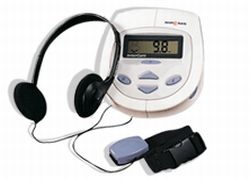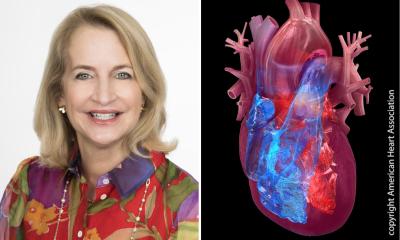Slow breathing and blood pressure
Understanding the way people breathe might explain how the body regulates blood pressure and much else.

Scientists do not fully understand what causes hypertension. To this end, Dr David Anderson, chief of research into behaviour and hypertension at the National Institutes of Health’s National Institute on Aging, is using a device – RESPeRATE – to ‘train’ volunteers suffering hypertension to breathe slowly.
In 2002, the device received FDA approval for non-prescription sale as an aid to help lower blood pressure by pacing breathing. It counts breaths by sensing chest or abdominal movements and makes gradually slowing sounds to signal when the user should inhale and exhale. The sounds are followed until the user’s breathing slows from around 16 to 19 breaths a minute to 10 or less.
In earlier clinical trials, volunteers who used the device for 15 minutes daily, over a two-month period, were reported to have lowered blood pressure 10–15 points. Dr Anderson pointed out that although slow, deep breathing can relax and dilate blood vessels, this is temporary, so does not explain the longer-term effect after using the device. He is now testing a theory that, when under chronic stress, people’s breathing can become ‘inhibitory’, meaning they shallow breath, unconsciously holding their breaths; this in turn diverts more blood to the brain to increase alertness, but that interferes with the chemical balance of the blood. Increased acidity in the blood decreases kidney efficient excretion of sodium – seen in animal studies.
30.08.2006
More on the subject:





